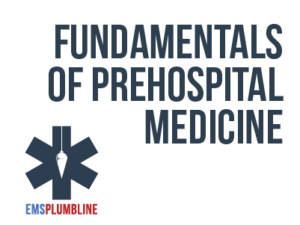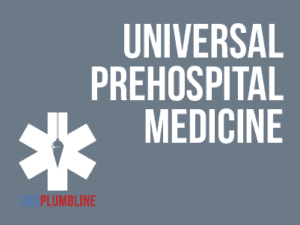Brick by Brick: Assessing the Elderly—Female Cardiac Patient

Course Description
We know that there are unique challenges when assessing elderly patients. BLS providers also encounter unique challenges when assessing females for potential cardiac problems. This lesson briefly reviews the BLS assessment skills that are required for both populations. The introduction of 12-lead ECG acquisition gives the BLS provider a chance to orient themselves to the skills necessary when working in a system that requires recording and/or transmission of such tracings. The multiple choice exam is designed to test your knowledge of the material you just reviewed. You have two attempts to gain an 75% or higher on this exam. Please take your time and answer each question carefully.
Take Lesson Now
Framing: Assessing the Elderly—Dementia vs. Delirium

Course Description
One of the most common challenges that EMS crews face when assessing elderly patients is to differentiate between dementia and delirium. This brief review will allow providers the opportunity to assess their knowledge of the topic. The lesson concludes with a few challenging exam questions that will be fuel for good discussion within your agency.
Final Exam: This multiple-choice exam is designed to test your knowledge of the material you just reviewed. You have two attempts to gain an 80% or higher on this exam. Please take your time and answer each question carefully.
Take Lesson Now
Brick by Brick: Assessing the Elderly—Respiratory

Course Description
One of the most common responses for EMS providers is the chief complaint of shortness of breath (SOB). In this session, we discuss the challenges of obtaining a history of present illness (HPI) in a patient that potentially has one of three significant differentials: COPD, pulmonary embolism, or pneumonia. We will also briefly discuss what a BLS provider should do when preparing these patients for ALS level care. Final Exam: This multiple choice exam is designed to test your knowledge of the material you just reviewed. You have two attempts to gain an 80% or higher on this exam. Please take your time and answer each question carefully.
Take Lesson Now
Geriatrics Block: Communication

Course Description
In Geriatrics Block: Communication, you will learn about the proper ways to communicate with geriatric patients. You’ll learn about causes and signs of hearing loss and aphasia and how to recognize both in patients. You will discover how to effectively and properly communicate with older patients, including those who have hearing loss or aphasia. Challenges that commonly arise in communications between nursing home staff and EMS personnel will also be discussed. You’ll learn about methods to avoid confrontational interaction, and will be able to identify ways to communicate effectively with nursing home staff to provide timely and appropriate medical care.
Take Lesson Now
NYS MOLST Training

Course Description
The New York State Medical Orders for Life Sustaining Treatment (MOLST) form contains medical orders that EMS must honor in critically ill and frail patients. In order to honor patient wishes at the end of life, it is essential that EMS clinicians are able to rapidly interpret MOLST forms and honor the orders. In 2023, DOH policy was updated to align with an updated MOLST form and to allow the recognition of health care agents by EMS without online medical oversight. This training reviews the legal roles of health care agents, discusses the purpose of the MOLST form, how to interpret orders and reviews five scenarios that will give you the confidence to interpret and honor MOLST orders when it matters most.
Take Lesson Now
End-of-Life Care (Part 1): Introduction—Palliative Care

Course Description
In Geriatrics Block: Communication, you will learn about the proper ways to communicate with geriatric patients. You’ll learn about causes and signs of hearing loss and aphasia and how to recognize both in patients. You will discover how to effectively and properly communicate with older patients, including those who have hearing loss or aphasia. Challenges that commonly arise in communications between nursing home staff and EMS personnel will also be discussed. You’ll learn about methods to avoid confrontational interaction, and will be able to identify ways to communicate effectively with nursing home staff to provide timely and appropriate medical care.
